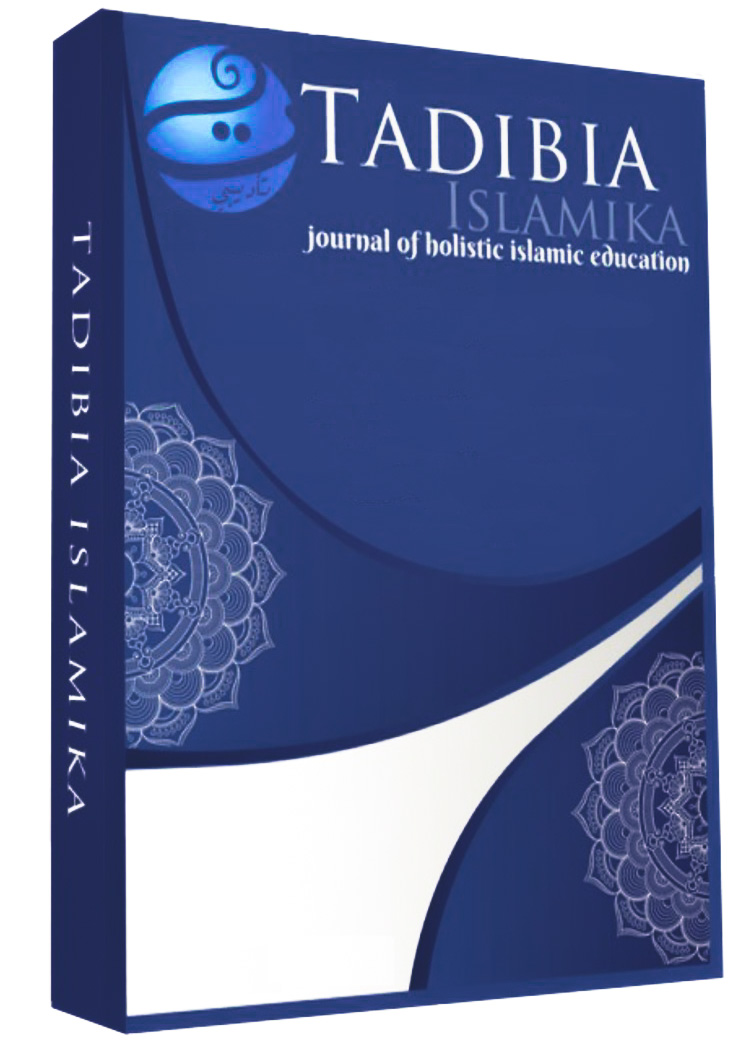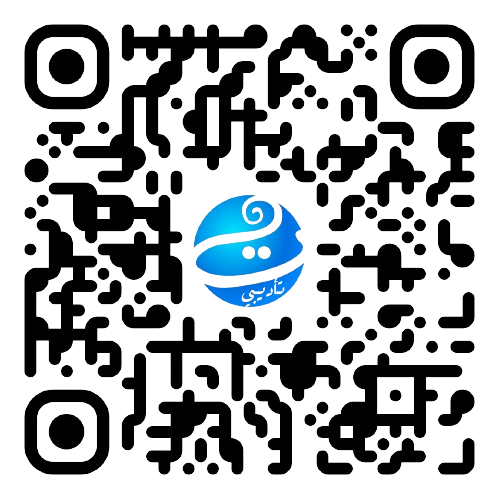Innovative approach in Islamic elementary education: Effective strategies for enhancing education quality
DOI:
https://doi.org/10.28918/tadibia.v4i1.7281Keywords:
Effective learning, innovative approach, Islamic elementary schools, learning model, student-centered learningAbstract
Effective learning in Islamic elementary schools necessitates the selection of approaches appropriate to specific learning models. This article aims to identify effective strategies, evaluate the impact of innovative approaches, and address particular challenges in this context. The research method involved an extensive literature review and analysis, utilizing descriptive data analysis to gain a comprehensive understanding of the collected data. This process included frequency counting, pattern identification, and data classification to discern trends, patterns, and key aspects. Teacher-centered approaches are typically associated with explanatory learning models, where the instructor plays a central role in delivering knowledge. Conversely, student-centered approaches align with constructivist learning models, emphasizing active student engagement and self-directed learning. Collaborative learning approaches support collaborative learning models, encouraging group work and peer-to-peer interaction, while project-based learning approaches are often linked to problem-based learning models, focusing on real-world problem-solving and critical thinking skills. Understanding these relationships is crucial for designing meaningful and effective learning experiences for students. By considering various learning approaches and models, instructors can select and implement the methods that best meet their students' diverse needs and learning objectives. Furthermore, integrating different learning approaches and models enhances student interaction, fosters deeper understanding, and promotes a more dynamic and engaging learning environment. Therefore, this article emphasizes the importance of effectively combining learning approaches and models to achieve the desired educational outcomes in Islamic elementary schools. By doing so, educators can create a more holistic and adaptable educational experience, ultimately leading to improved student performance and a deeper appreciation for lifelong learning.
References
Aisyah, S., Arisanti, K., & Yaqin, F. A. (2023). Adaptasi dan inovasi madrasah ibtidaiyah dalam menyambut kurikulum merdeka belajar. Journal Education, 9(1), 386-393.
Anderson, R., & Davis, K. (2021). Exploring the relationship between teacher-centered approaches and expository learning models. Educational Psychology Review, 40(3), 201-220.
Brown, C., & Garcia, R. (2022). Enhancing learning approaches in primary education: A comparative analysis. International Journal of Educational Innovation, 30(4), 567-589.
Cahyono, B. Y. (2021). Pendidikan dasar: Teori, isu, dan aplikasi. Pustaka Pelajar.
Cooper, H. M. (2021). Research synthesis and meta-analysis: A step-by-step approach (6th ed.). Sage Publications.
Fitrian, L. (2024). Perspektif kontemporer terhadap kurikulum dan pengajaran: Tantangan dan inovasi dalam era pendidikan modern. Jurnal Inovasi Global, 2(1), 224-240.
Hidayat, N. A. S. N., & Nisa, N. (2022). Tantangan inovasi pendidikan di masa pasca pandemi. Jurnal Basicedu, 6(5), 9079-9086.
Huda, M. (2020). Implementasi pembelajaran aktif. PT Remaja Rosdakarya.
Johnson, D., & Smith, R. (2019). Exploring the relationship between cooperative learning approaches and collaborative learning models. Educational Psychology Review, 35(2), 123-145.
Lestari, D. I., & Kurnia, H. (2023). Implementasi model pembelajaran inovatif untuk meningkatkan kompetensi profesional guru di era digital. Jurnal Pendidikan Guru, 4(3), 205-222.
Lubis, M. A., Taib, S. H., & Ismail, M. A. (2019). Inovasi sistem pendidikan dan strategi pengajaran bahasa Arab di era milenial 4.0. ASEN Comparative Education Research Journal on Islam and Civilization (ACER-J), 3(2), 9-20.
Nainggolan, J. (2022). Evaluasi pembelajaran siswa dan tantangan solusi selama pandemi Covid-19. Jurnal Pendidikan Indonesia: Teori, penelitian, dan inovasi, 1(3), 20-26.
Petticrew, M., & Roberts, H. (2020). Systematic reviews in the social sciences: A practical guide. John Wiley & Sons.
Purwanto, N. (2021). Evaluasi hasil belajar. Prenadamedia Group.
Rohiat, A. (2020). Model pembelajaran inovatif: Suatu pendekatan konseptual. PT. Rajagrafindo Persada.
Smith, J., & Brown, A. (2020). The role of teacher-centered approaches in education. Journal of Educational Strategies, 25(1), 56-70.
Smith, J., & Brown, A. (2020). Constructivist learning models: The relationship with student-centered approaches. Journal of Educational Strategies, 25(1), 56-70.
Suharyono. (2023). Menuju madrasah ibtida'iyah unggulan: Strategi dan tantangan dalam meningkatkan kualitas pendidikan Islam di Indonesia. IJAR: Indonesian Journal of Action Research, 2(1), 111-119.
Thomas, J., & Brown, C. (2020). The relationship between project-based learning approaches and problem-based learning models. Journal of Educational Innovation, 30(4), 567-589.
Tranfield, D., Denyer, D., & Smart, P. (2021). Towards a methodology for developing evidence-informed management knowledge by means of systematic review. British Journal of Management, 14(3), 207-222.
Yeliany, A. (2021). Efektivitas pembelajaran jarak jauh. Jurnal Inspirasi Manajemen Pendidikan, 9(4), 873-886.
Yuliana, D. B. (2022). Pembelajaran inovatif dalam pengajaran jarak jauh selama pandemi Covid-19. AL-ASASIYYA: Journal Basic of Education (AJBE), 6(2), 85-101.
Zuhri, M., & Sofianto, A. (2021). Inovasi pembelajaran jarak jauh pada era pandemi Covid-19 di Jawa Tengah. SNITT-Politeknik Negeri Balikpapan, 3(2), 94-101.
Downloads
Published
How to Cite
Issue
Section
License
Copyright (c) 2024 Refi Mariska, Zaenal Mustakim

This work is licensed under a Creative Commons Attribution-ShareAlike 4.0 International License.



















